MercoPress. South Atlantic News Agency
Tag: violence
-
Monday, February 18th 2013 - 06:14 UTC
Brazil deploys elite forces in southern state to contain wave of violent attacks from drug lords
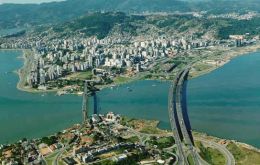
Elite police commando units fanned out across the streets of the Brazilian southern state of Santa Catarina over the weekend in an attempt to contain a wave of violent attacks over the past two weeks.
-
Friday, February 1st 2013 - 07:32 UTC
Cost of crimes against property and people in Uruguay estimated at 3.1% of GDP
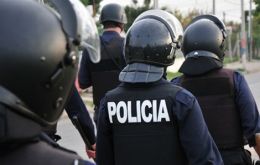
The cost of crimes against property and people in Uruguay in 2010 totaled at least 1.2 billion dollars, which was equivalent to 3.1% of the country’s GDP. This was the conclusion of a new study carried out at the country’s Economic Research Center by researchers Aboal Diego, Jorge Campanella, and Bibiana Lanzilotta, with the collaboration of Magdalena Dominguez and Maren Vairo.
-
Monday, November 26th 2012 - 23:32 UTC
Brazil’s largest city replaces all chiefs of police to contain an escalating wave of killings
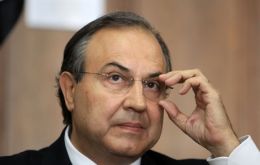
The chiefs of police in Sao Paulo were replaced on Monday as Brazil's largest city emerged from a bloody weekend and authorities struggled to contain a wave of violence that has doubled the murder rate in recent months.
-
Monday, November 26th 2012 - 04:35 UTC
Sao Paulo City gripped in a “civil war” between organized crime and the police, says top Judge
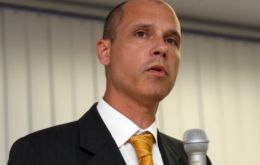
A Brazilian magistrate described the wave of killings in Sao Paulo city as a ‘civil war’ between organized crime and unsupported police forces to which the local population is closing its eyes.
-
Friday, October 28th 2011 - 20:39 UTC
Six our of fourteen of the world’s most violent countries are in Latin America
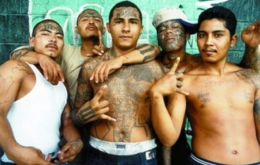
Six of the 14 most violent countries in the world are in Latin America revealed the second edition of the report “Armed Violence and Development” published Thursday in Geneva by the Secretariat from the Geneva Declaration on Violence and Development, a diplomatic initiative born in 2008.
-
Saturday, October 8th 2011 - 08:13 UTC
Justice Minister admits a “culture of violence” and “impunity” in Brazil
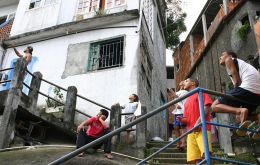
“Economic interests” and a “culture of violence” are to blame for rate crimes in Brazil and conspire against government plans to disarm the population and improve security, claimed Justice Minister Jose Eduardo Cardozo.
-
Saturday, October 8th 2011 - 08:09 UTC
Latin America has highest rates of intentional homicide, says UNDOC report
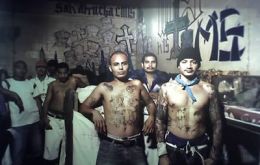
The United Nations Office on Drugs and Crime, UNODC, has released its first “Global Study on Homicide”, which shows that young men, particularly in Central and South America, the Caribbean and Central and Southern Africa, are at greatest risk of falling victim to intentional homicide.
-
Saturday, August 27th 2011 - 07:21 UTC
Mexico demands crackdown on drugs in the US following casino carnage
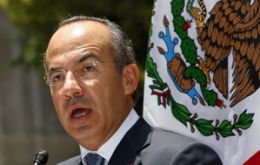
Mexican President Felipe Calderon declared three days of mourning Friday and demanded a crackdown on drugs in the United States after armed men torched a casino in northern Mexico, killing at least 65 people.
-
Friday, February 11th 2011 - 06:19 UTC
Major brawl in Venezuelan congress between pro and anti Chavez lawmakers
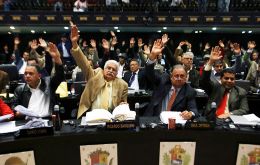
Venezuelan lawmakers exchanged punches in parliament on Thursday when a fight erupted between members of President Hugo Chavez's socialist party and rivals, in a sign of the country’s political polarization.
-
Wednesday, August 18th 2010 - 19:01 UTC
Printed media also victim of Venezuelan rampant crime
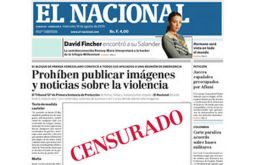
A judge in Venezuela has ruled that all printed news media cannot publish “violent, bloody or grotesque” photographs for the next 30 days because the pictures can cause psychological and moral harm to children.
